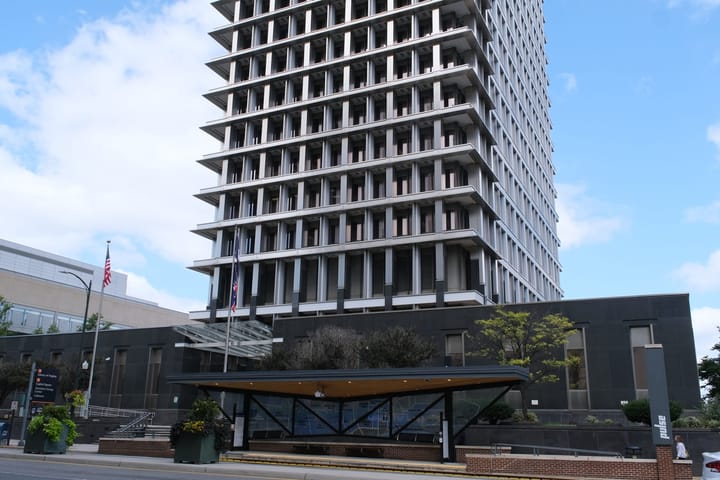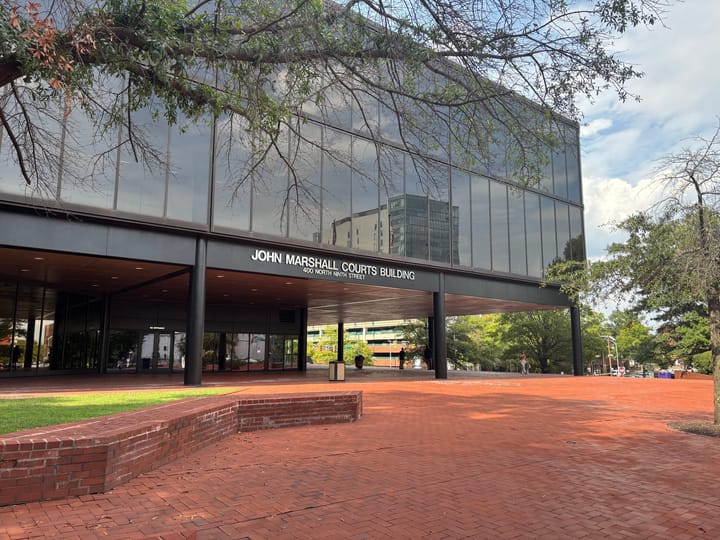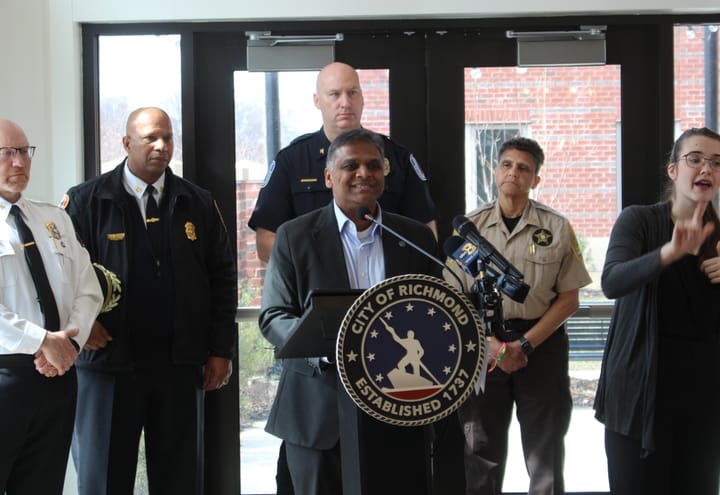
Judge to review two city-issued phones as part of FOIA ‘whistleblower’ case
A Richmond judge will take a look at two government-issued cell phones to help settle a bitter legal dispute over whether the city has or hasn’t turned over all text messages relevant to the 2024 firing of former public records official Connie Clay.
Attorneys for Clay — who sued the city last year after she was fired from her role as Richmond’s Freedom of Information Act officer — argued in court Monday that they have reason to believe there are some text messages still missing from the evidence the city has had to produce for the lawsuit.
“We need to know what is still on those phones and what isn’t,” said Sarah Robb, an employment lawyer representing Clay.
An outside lawyer representing the city and former city spokeswoman Petula Burks disputed that claim, calling the issue a “red herring” and insisting the city has already given Clay’s lawyers everything there is to give.
“We went through the cell phones,” said Jimmy Robinson, an attorney with the Ogletree Deakins law firm hired to represent the city in the Clay case. “We didn’t see the breaks that they’re talking about.”
As the two sides stopped just short of accusing each other of spreading falsehoods, Judge Claire Cardwell said she would take it upon herself to review the work phones of Clay and Burks, Clay’s former boss.
“The problem is I don’t know what, if anything, has been deleted,” Cardwell said.
It’s not yet clear if any communication records were erased or improperly withheld, but that’s partly what Cardwell will attempt to resolve as she reviews the phones.
Text messages between public officials related to government business are subject to Virginia’s FOIA law, which means they have to be retained as public records and shouldn’t be casually erased if the phone changes hands.
If the city cannot provide some records potentially relevant to Clay’s case, it wouldn’t necessarily sway the outcome. The case rests on whether Clay was wrongfully fired for protected whistleblower activity, not whether the city was in strict compliance with records retention policies.
Clay — whose job involved responding to requests for city documents from media outlets, activists and regular citizens — is arguing she was fired because she insisted that the city follow transparency laws even when higher-ranking officials were reluctant to release documents to the public.
The city has called that claim baseless, contending Clay was difficult to work with and wasn’t retaliated against for raising alarms about FOIA compliance.
The lawsuit has progressed to the document and deposition phase ahead of a three-day trial set for next month. Though an adversarial relationship always exists to some extent in civil litigation, the Clay case has seen unusual levels of hostility between dueling lawyers. At one point during Monday’s hearing, Cardwell said she had no doubts about the attorneys’ integrity but called them “both a little stubborn.”
A case fundamentally about City Hall transparency has now raised new questions about whether the city is being fully transparent in the litigation itself.
Clay’s team has argued city business was regularly conducted on both personal and work phones belonging to Clay and Burks. When Clay was fired in January of 2024, she still had access to messages on her personal phone but had to surrender her work phone.
As Clay’s attorneys have tried to build a complete record of text messages relevant to FOIA disputes and Clay’s termination, they say they’ve seen implausible gaps in the timeline and snippets of incomplete conversations.
“We only have pieces of the puzzle,” Robb said at Monday’s hearing.
The Richmonder is powered by your donations. For just $9.99 a month, you can join the 1,000+ donors who are keeping quality local journalism alive in Richmond.
Arguing for the importance of having a full record of text messages, Robb previewed one text that has surfaced ahead of the trial.
In one message to Burks, Clay said: “The abuse from city employees from the mayor’s office on down is becoming intolerable.”
Cardwell floated the possibility of ordering the city to give Clay access to her former work phone.
Robinson objected to giving the opposing side access to city property, but said he had “no problems” with giving both phones to the judge.
The judge also ordered the city to give a copy of any separation agreement the city made with Burks last year. Clay’s team has tried to get that document as part of the litigation, arguing it’s relevant to establishing how much weight jurors should give to Burks and her testimony about city affairs.
Cardwell seemed to agree, saying if there was any sort of “quid pro quo” between Burks and the city that would be a fact the two sides could argue over at trial.
Robinson briefly brought up the city’s motion to have the court block Clay from filing FOIA requests with the city while the lawsuit is pending. The judge didn’t rule on that question, and it’s not clear if the city will continue pressing it.
The three-day jury trial in the case is set to begin Sept. 23.
Contact Reporter Graham Moomaw at gmoomaw@richmonder.org






